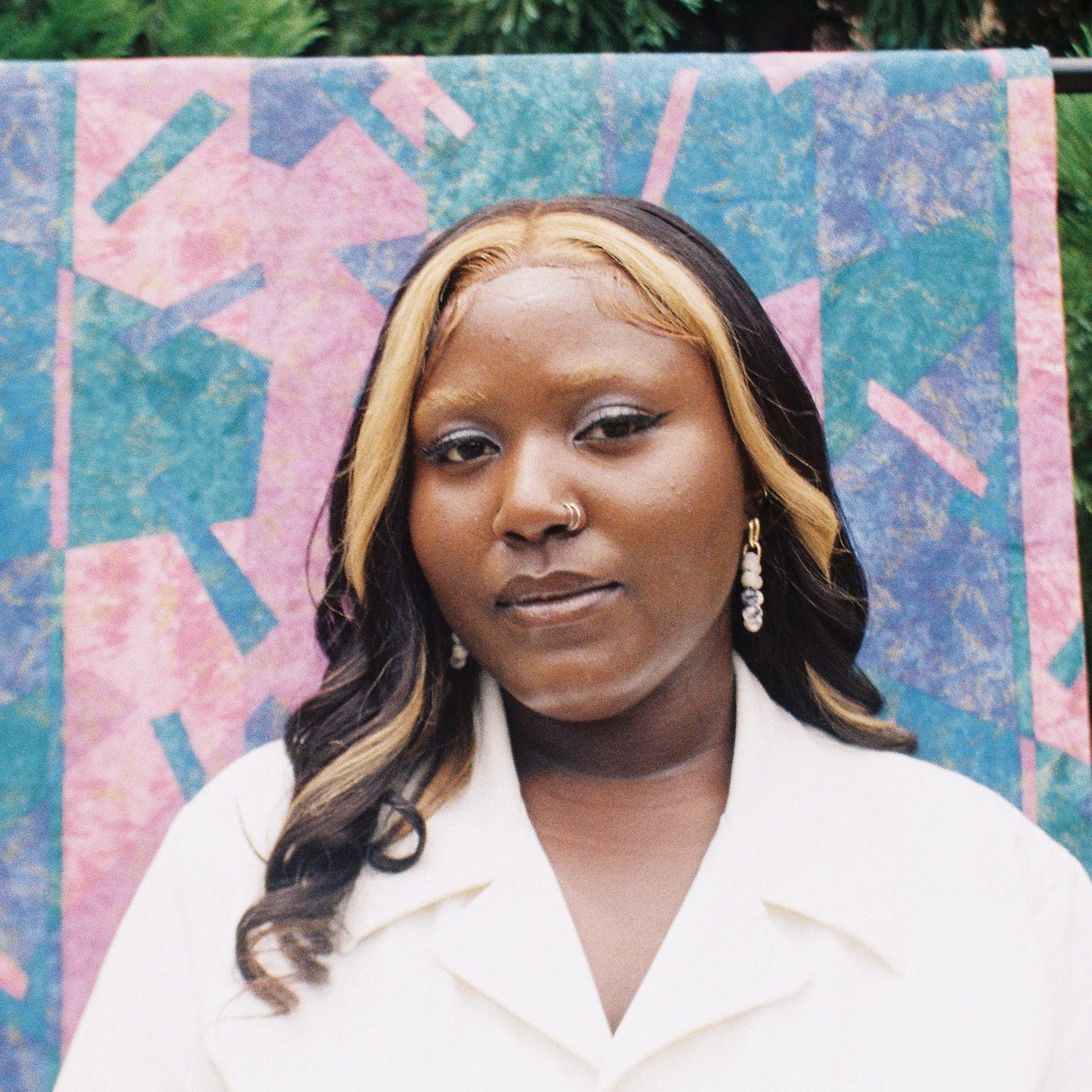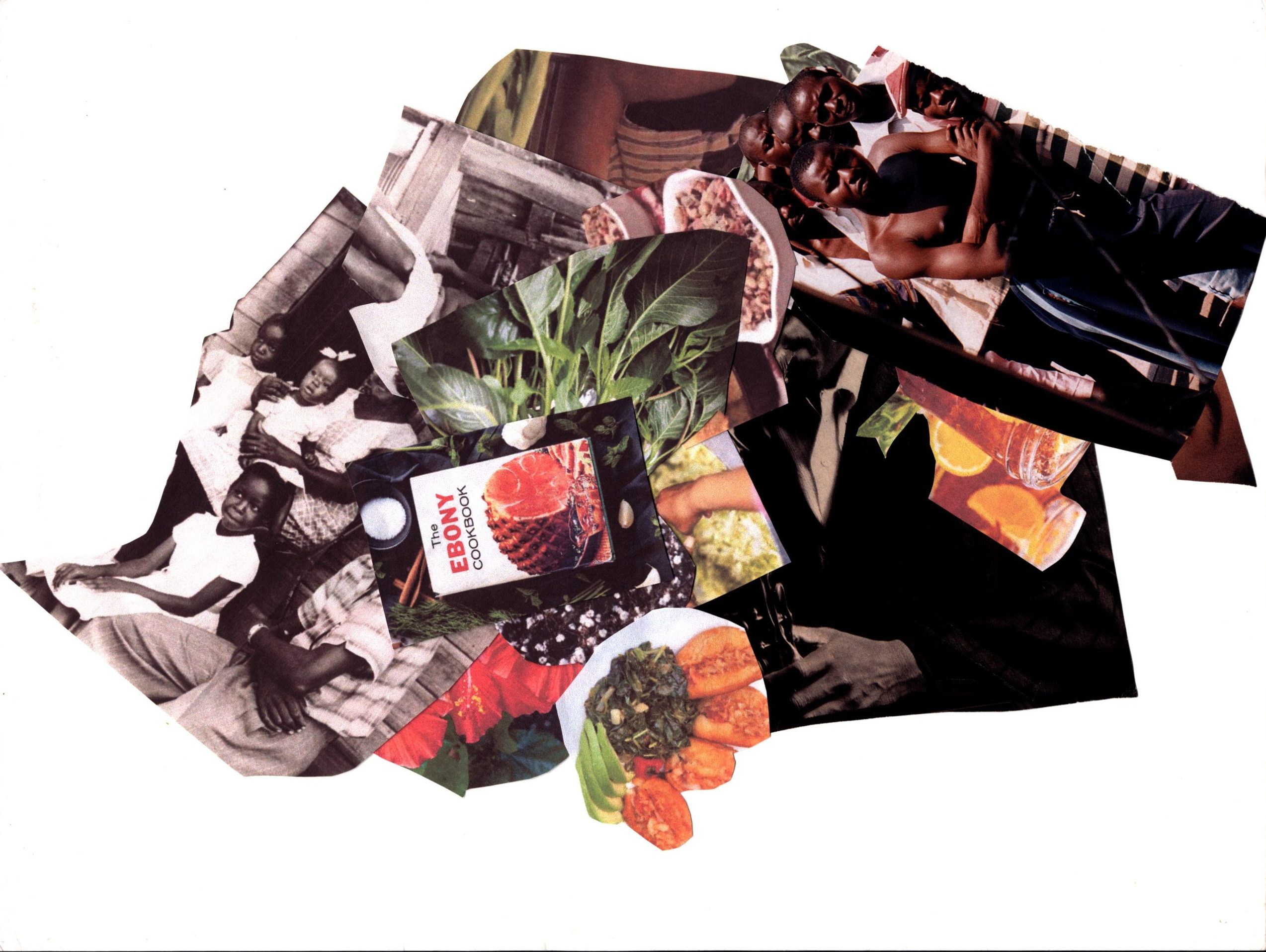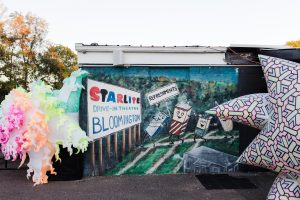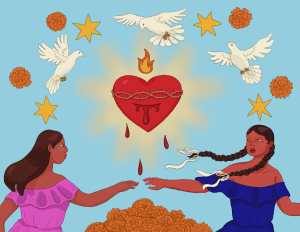
These poems were selected through Sixty Literary, a biannual call for literary writing from writers and artists based in the Midwest. You can learn more about Sixty Lit’s inaugural call for writing here.
A sorrel story
dried hibiscus. water. sugar. ginger. orange peel.
rosemary to taste. cloves on sunday. rum if you’re thirsty.
beginning
a sorrel with limbs speaks to you, softly, oozing out
and seedy, cut away the seeds so you can see
clearly. sorrel stains. leaves her lush red imprints
on the surface to be scrubbed away tomorrow.
now
a portrait of a daughter, aunt, grandmother looming over
a match-lit flame, a browning pot, a humming stove
sharing a room, a spirit, an energy. these women are
boiled together, steaming together, at the surface
more
steeped, dark and red, opulently wafting through
this kitchen. like a blood moon, lips wait eagerly
for a kiss with this spineless body, this shapeless frame
cool and strain, allow to remain for at least another day.
serve with ice on summer days.
.
Southern Cookery
the kitchen is quiet at this hour, the recipes stale
the pages worn. meek fingertips flipping through this divine,
this bible, this archive. you are placing your hands
over mine, this is how you slice, hold the knife
steady, strip the papery skin, and at a 90-degree angle
press. and once we’re spread out on the cutting board
we can fall into the pan, simmer low, heads high—
white noise, hissing to the burner, yearning for the sink.
yearning to be washed over, cleansed and washed anew.
when we cook together you forget, forget your conditions
and I’m no longer part of your entrapment, I am the apron
wrapped around your waist and expectant of your embrace.
.
My mother grills in the winter and you can too
Step one is shoveling, crunchy snow, not fresh, not the kind in the postcards, like the first November snow that paints the city like a hallmark card. This is the February snow, too low to keep you warm, too high for comfort. It’s dark out, and you stand outside, in your winter coat and slides and then:
Charcoal smells like summer, like laughter and communion. Charcoal burns like communion too, like witches, like Jesus, like a full moon manifestation. Charcoal in the round grill, shoots up to the heavens, smokes down to the surface, glowing and suffocating us all at once. Charcoal as a ritual candle, heating and healing.
Step two is ignition, bask in the leathering glow, strips on the grates, arms extended, we turn black, and grey and orange and then brown. Steak should be tender, a little red in the middle. That’s my secret. My mother taught me how to grill in the summer, and now I grill in the winters too, like sunrise and sunset.
My grandfather was blue black, Black like the sky reflecting into the sea, Black like a long time smokers lips. Blue like the tenderest hug, like the the skies opening their arms and pouring down on to us, blue like awaiting their chilled embrace. My grandfather had a secret ingredient too, his steaks always managed to look black on the outside, and bleed from the center.
Step three is the gift. The lids off, the tables set, butter knives rest easy on this holiday, this vacation. We begin a search for a sharper silver, a sturdier grip, and wrap this tray of smoked meats with various grains and a small bowl of peas. Grilled meats are the main attraction, wakening the neighbors and alerting the stray pets; someone is being fed.
.
Sunday Service
stone ground grits and water and buttermilk; half of each
and lots of butter, just when you think you’ve added enough–
add more
in the kitchen, a pot sits on the stove, a circle of blue flames
grazing the bottom surface, this charred pot is our favorite
rust dancing around it’s edges, never fully cleaned
and when the when the sun floods the kitchen, dipping our skin
in honey, baking the room to 350, and the water bubbles to the surface,
oozing through the lid, pour the grits into the pot, slowly
whisk immediately, and continuously
add a dash of lawrys, and a couple more dashes
to taste. and maybe some cheese, forget your tolerance
this sunday, may god wash it away like he washed your sins.
definitely add cheese, and plenty of butter. when you stir the pot
it should be creamy and thick. serve with bacon, eggs and a
dark-roasted coffee. grits harden quickly, eat while hot.

About the author: Jordan Barrant is a Chicago-based writer, curator, and interdisciplinary artist whose work interrogates the cosmological intersections of the ineffable, the South, and the Caribbean. Through oral histories and archival research, Jordan sees the past as an invitation to brighter and loving futurities. Working across film, photography, and poetry, Jordan is affirmed by process and bound by deep listening.

About the artist: kee mabin (they/them, formerly alkebuluan’kee’merriweather) is an aspiring ethnomusicologist working within the mediums of photography, music sampling, collage, videography and storytelling through black archival theory. As an electronic sound artist, and founder behind archives such as Black Matriarch Archive, Homagetoblkmadonnas (now acquired by Black Beauty Archives), and crunk music archive (now acquired by Georgia State University), kee seeks to conceptualize narratives as it relates to their lineage of Black southern, Jamaican, and Ethiopian Sephardic Jewish ancestry.



